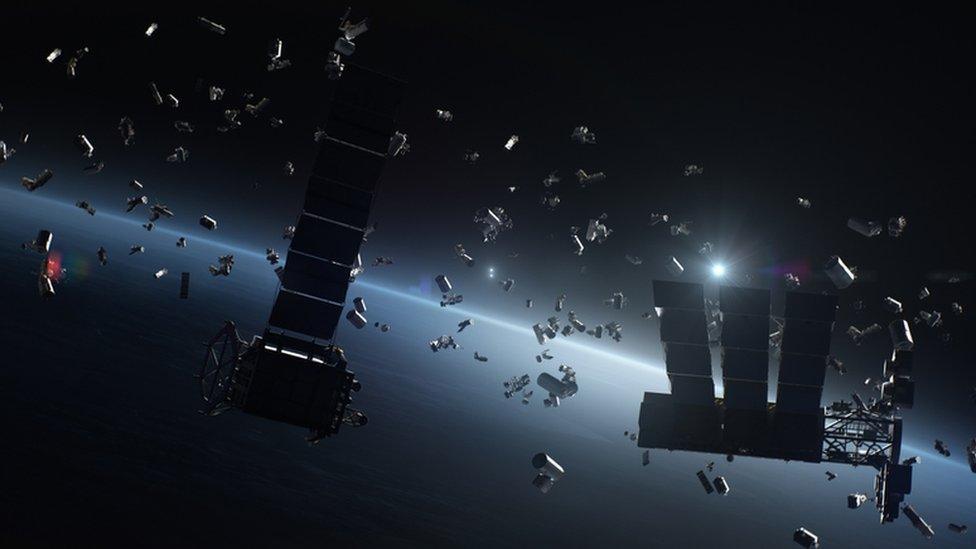Space junk: US government issues first space debris fine
- Published
- comments
WATCH: What is space junk?
The US government has issued its first fine to a company for leaving junk in space.
US TV company Dish Network has been told to pay $150,000 (around £125,000) for failing to remove a satellite out of orbit - risking its collision with other space equipment.
Space junk is becoming a big problem as even a small piece of debris can cause a huge amount of damage, due to the high speed at which it travels.
The European Space Agency estimates that there are around one million pieces of debris larger than a centimetre within Earth's orbit - big enough to "disable a spacecraft."
Why did the company get a space junk fine?

In 2002 Dish Network launched a satellite, called EchoStar-7, into orbit.
Ten years later, as the satellite came to the end of its operational life, Dish promised to move the satellite around 190 miles above where it was - so that it wouldn't be a risk to other active orbiting satellites.
However, with fuel running low, Dish realised it couldn't send the satellite to its agreed destination and so it retired the satellite only around 75 miles above its original position.
This meant it was at an altitude low enough to potentially cause a space debris risk to other orbiting objects.
The Federal Communications Commission (FCC), who issued the fine said: "This is a breakthrough settlement, making very clear the FCC has strong enforcement authority and capability to enforce its vitally important space debris rules."
Space debris is already causing problems for scientists - from a near-miss in January last year involving a Chinese satellite, to a five-millimetre hole knocked into a robotic arm on the International Space Station in 2021.
What is space junk?
WATCH: Learn how large unused rocket bodies in space have the potential to break into thousands of pieces
Space junk is sometimes called space debris. It could be bits of an old rocket, a broken satellite or a camera, or even a screwdriver dropped by an astronaut.
As we send more things into space, we end up leaving a lot of rubbish up there.
Space junk orbits around the Earth because of our planet's gravity - -the thing that keeps us on the planet - and keeps the Moon circling around us.
This junk orbits around Earth super fast - at speeds of up to 18,000 mph.
At these speeds even tiny pieces of debris are huge risk to functioning satellites that manage our GPS and communications technology and to astronauts living and working on the International Space Station (ISS), or travelling on spacecrafts.
Space junk can also cause problems for us here on Earth, as it could damage the satellites we use in space for things like maps, mobile phones and the internet.
